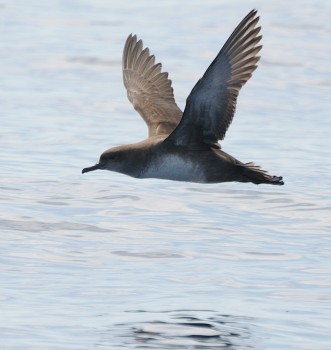The phylogeography of many seabird species remains poorly known. They are highly mobile organisms supposedly free from geographical barriers to dispersal, which should theoretically prevent population differentiation through isolation. However, population differentiation within a species can be significant despite high mobility (Friesen et al. 2007). Many species of seabirds are highly philopatric, partially or completely removing the effects of dispersion. Petrels (family Procellariidae) are among those species. Despite a large number of ecological studies on petrels, little is known of their phylogenetic relationships and their phylogeography, and many taxonomic issues are yet to be resolved.
The overall objective of the proposed project is to study the phylogenetic and phylogeographic characteristics of the Procellariidae to describe better their current distribution, and attempt to characterize the population differentiation processes that took place among species in this family. From a large collection of field and museum samples (genetic samples of nearly 4000 individuals from 44 different species; morphological data from 12 000 museum specimens already available) and behavioural data (vocalization data for most species), the aim of this PhD project will be to improve our understanding of procellariid evolution and biogeography by selecting a few emblematic case studies (e.g. speciation radiation in the Pterodroma genus; species complex or super species in either Pterodroma or Puffinus) and by expanding already available data sets. For instance, whether retained ancestral genetic variation is masking contemporary barriers to gene flow, and how past population bottlenecks contribute to contemporary genetic structure, could be evaluated using coalescent-based methods. This work will be strongly anchored in conservation biology, since half of the petrel species are currently threatened.
Applicants should have a Master’s degree in a relevant field, experience with molecular laboratory techniques, experience with phylogenetics and phylogeography and an excellent background knowledge in evolutionary biology below, at and above the species level.
To apply send CV with your publication record, a list of skills relevant to the project, contact information for two academic references, and a one-page cover letter by 25 May 015 to Eric Pante (

Balearic Shearwater at sea
Read the full advert here.
Reference:
Friesen, V.L., Burg, T.M. & McCoy, K.D. 2007. Mechanisms of population differentiation in seabirds. Molecular Ecology 16: 1765-1785.
John Cooper, ACAP Information Officer, 21 May 2015

 English
English  Français
Français  Español
Español